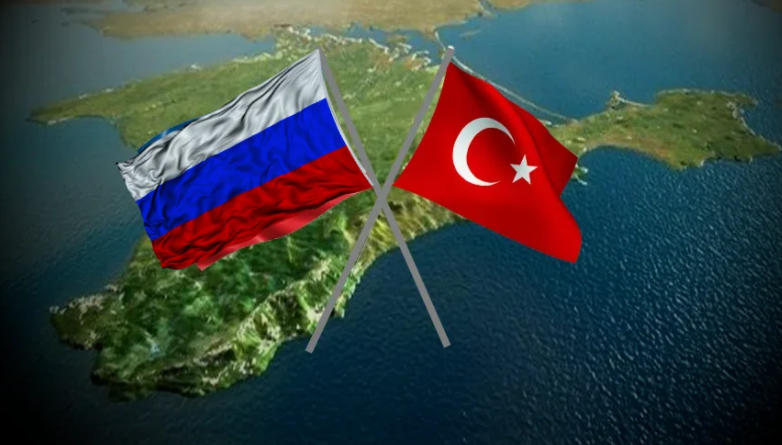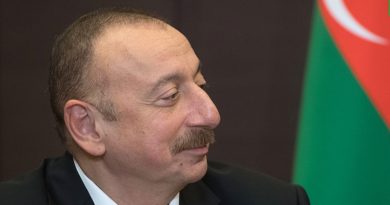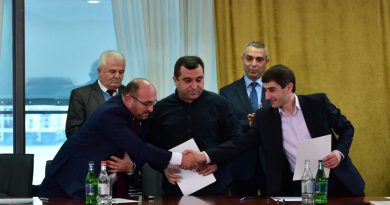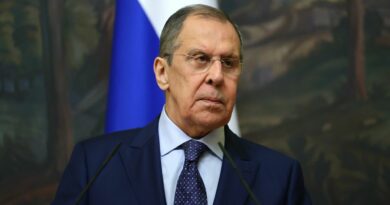Contradictory statements from Ankara: the Moscow Treaty and the anti-Russian position on Crimea
The Permanent Representative of the Crimea to the President of the Russian Federation, Deputy Prime Minister of the Republic Georgy Muradov called Turkey’s position on the refusal to recognize the Russian status of the peninsula unacceptable.
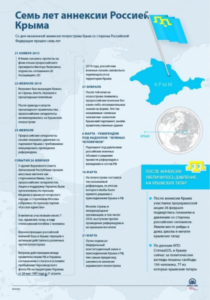 The Turkish authorities have repeatedly stated that they do not recognize the «annexation of Crimea» and stand for the territorial integrity of Ukraine. On the occasion of the 7th anniversary of the “annexation of the Crimean peninsula” to Russia, the Turkish Anadolu agency created an infographic with a chronology of the events on the transition of Crimea to the Russian Federation. The Turkish Foreign Ministry issued a statement saying that this historical document has become the basis for the development of diplomatic relations between the two countries and that dialogue and cooperation at the bilateral and regional levels continue, which also will continue to strengthen bilateral relations, peace, stability and prosperity in the region.
The Turkish authorities have repeatedly stated that they do not recognize the «annexation of Crimea» and stand for the territorial integrity of Ukraine. On the occasion of the 7th anniversary of the “annexation of the Crimean peninsula” to Russia, the Turkish Anadolu agency created an infographic with a chronology of the events on the transition of Crimea to the Russian Federation. The Turkish Foreign Ministry issued a statement saying that this historical document has become the basis for the development of diplomatic relations between the two countries and that dialogue and cooperation at the bilateral and regional levels continue, which also will continue to strengthen bilateral relations, peace, stability and prosperity in the region.
«The Moscow Treaty does not lose its significance a century after the document was signed,» delcared the Chairman of the Grand National Assembly of Turkey, Mustafa Shentop on Monday, March 15 this year in Ankara. Shentop called on the business community to increase investment in Russia. According to Shentop, Turkey and Russia should be partners and maintain a constructive dialogue. «The best way to achieve this is to have feasible goals and sincerity.» Everyone knows about the Turkish imaginary «sincerity» and pleasantries. With this very sincerity of intentions, Turkey still does not recognize the monstrous Armenian Genocide committed in the Ottoman Empire in 1915.
But in a nutshell, it is worth reminding readers about the Moscow Treaty of March 16, 1921. Soviet Russia of the time and Kemalist Turkey signed a Treaty of friendship and brotherhood in Kremlin. According to the terms of the treaty, Armenian territories Kars, Ardahan and Surmalu district, which had never been part of Turkey before, along with the sacred Mount Ararat, were ceded to the Turks, while Turkey ceded Batumi to Soviet Georgia. In addition, Moscow pledged to provide the Kemalists with substantial assistance in money and weapons in the fight against Greece, thereby saving Turkey from complete destruction. If we take a look at the issue from the point of the international law, the treaty had no legal force, since at the time of its signing the sides were not subjects of international law.
The statements of the Turkish Foreign Ministry are contradictory. Turkish diplomats claim to have achieved regional stability with Russia, but at the same time express support for Ukraine on the issue of Crimea, which in itself already provokes tension in the bilateral relations with Russia. Referring to the Moscow Treaty, Ankara clearly hints at possible steps to revise the historical document on the Russian side, may lead to a sharp increase of anti-Russian sentiment and pressure on Moscow regarding the issue of Crimea.

